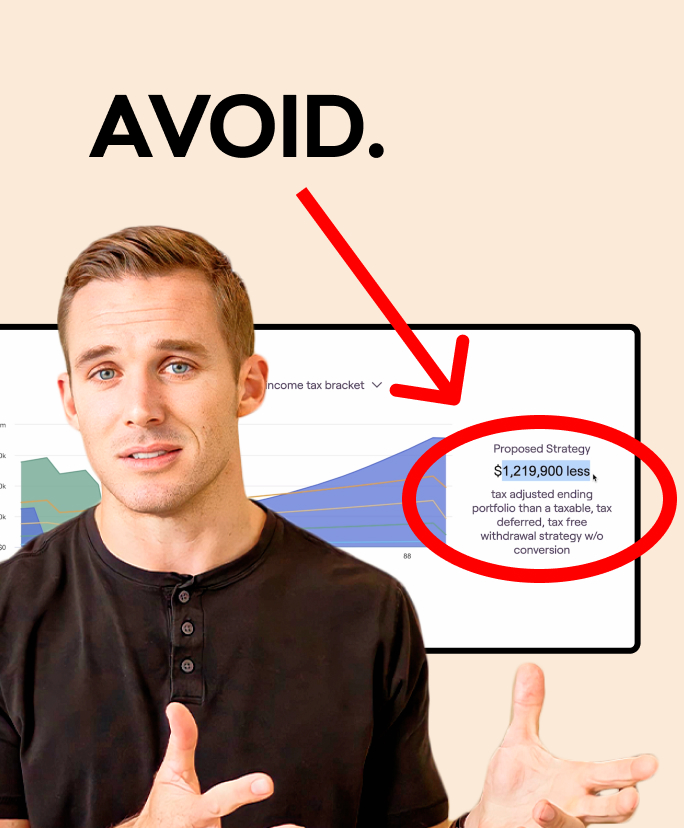Once you have maxed out your 401k, there are many other options available to help you save for retirement. However, before exploring these options, it is essential to have a well-constructed financial plan that helps you understand how much you should allocate to retirement and how much to allocate elsewhere. This decision should be based on factors such as your age, your retirement goals, and your current savings.
For instance, consider three individuals, all of whom are 55 years old, and want to retire at 65 with $1 million. Person 1 already has $800,000 saved for retirement and is maxing out their 401k, and if they continue to get a 6% growth rate on their investments, they will have $1.83 million by age 60. In this case, they may not need to keep saving as they are already on track to overfund their goals.
In contrast, person 2 has $350,000 in their portfolio, is maxing out their 401k, and is on track to reach $1 million by age 65. While they could save more, they may not need to unless they want more cushion and flexibility.
Of course, if they want to keep saving there’s nothing wrong with that. Having an overfunded retirement isn’t bad at all, it just isn’t necessary.
Lastly, person 3 has nothing saved and wants to retire at 65 with $1 million. If they max out their 401k and get a 6% growth rate, they will only have $395,000 by age 65. In this case, there are several options available to help them save more for retirement.
Once you have assessed your retirement savings goals and current savings, you can explore other options to save for retirement.
HSA
One option would be contributing to a health savings account (HSA). An HSA is an account that allows you to save for medical expenses, and if you have a high deductible health plan, you can contribute pre-tax dollars. The money grows tax-free, and if you use it for qualified medical expenses, it is tax-free when withdrawn.
401k Options
One option is to contribute to an after-tax 401k. Although the growth on those dollars is taxable, the contributions themselves are tax-deferred. You’re not paying taxes on interest, dividends, or capital gains as it’s growing, but it’s not tax-free. You’ll have to pay taxes when you withdraw the money in retirement. However, you can immediately convert after-tax contributions to a Roth 401k, which is tax-free when you withdraw the money in retirement.
Brokerage Account
Another option is to contribute to a regular brokerage account. Although you lose the tax benefits, you gain flexibility. The money is fully yours, and you can use it for anything you want, not just retirement. This can be a wonderful complement to your IRAs and Roth IRAs and other account types to build out a well-rounded financial portfolio.
Employee Stock
If you have access to an employee stock purchase plan, you may want to consider participating. You typically get a discount on your company’s stock price, and if you sell the stock immediately, you can get a significant guaranteed return on your investment.
Other options include contributing to a traditional or Roth IRA, investing in real estate, or starting a business. These options can provide additional income streams or help you save more for retirement while diversifying your investment portfolio.
Pay Down Debt
Last but certainly not least, one commonly overlooked strategy is to pay down debt, especially high-interest debt such as a credit card or personal loan. There’s little point in investing your money to see a return under 10% when you have debt that’s accumulating over 18% interest. Of course the financial return will not be as good as investing in the stock market long-term, but the emotional return and quality of life it creates can be much better.
While maxing out your 401k is an excellent step towards saving for retirement, it may not be enough for everyone. There are several smart options available, and each comes with its own pros and cons.
Make sure to assess your retirement goals and current savings and create a well-constructed financial plan before exploring other options to save for retirement. You should also speak with your financial advisor and accountant to make sure you’re choosing the right strategy for you, and doing it correctly.
Need help with your retirement?
Work directly with a licensed financial advisor at Root. Book a no-obligation initial call now so we can show you how we’ve helped hundreds of people just like you build a retirement they love.


